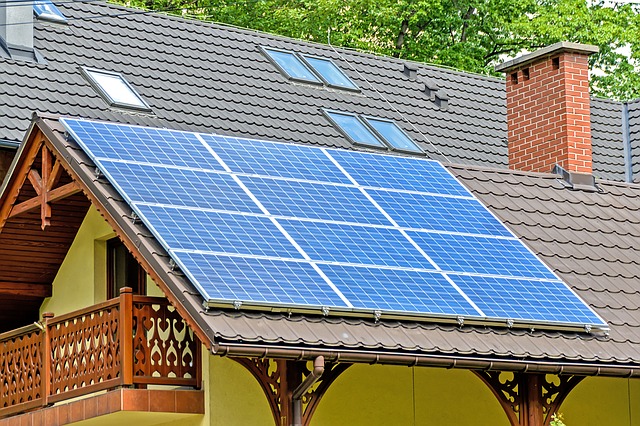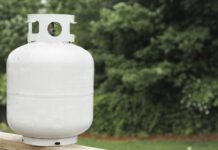In recent decades, many homeowners have considered ways to live greener lifestyles. Some opt to make smaller changes in their habits, such as recycling or buying green lightbulbs. Others decide to make more long-term purchases.
The most famous way of going green is installing solar panels. Though solar panels had a dubious reputation for many years because of their expense, this has changed since the 2010s. In that time, solar panels became more affordable and efficient for the average homeowner.
However, the average cost of solar panels isn’t cheap. In the US, it often falls around $20,000-$21,000.
If you’re considering purchasing solar panels, you want to know what factors contribute to that cost. Is it worth the price, or is it all a ripoff?
If you’re asking these questions, don’t worry! We’ll break down the factors that affect solar panel cost in this article.
The Average Cost of Solar Panels in the US
As we mentioned above, the average cost for solar panels in the US falls around $20,000. However, the broader range of quotes can fall anywhere between $17,000 and $23,000. There are several reasons why the median falls closer to $20,000.
First, the United States offers a federal tax credit that drastically reduces the cost of a solar panel system. This tax credit amounts to 26% off your solar panel installation.
From there, the variables in cost tend to come from your company’s installation costs and system manufacturer. Fortunately, data trends suggest that solar prices continue to fall.
Solar manufacturing is a young industry. As it continues to innovate, these systems will likely become more affordable.
While the national average for home solar panels is around $20,000, there are variations in different states. Several states offer additional benefits on top of the federal tax credit. We’ll discuss how a region can affect solar panel installation costs.
Solar Panel State Costs
States can affect solar costs in two ways. First, they may offer additional tax credits or financial incentives for purchasing solar panels. Secondly, their climate can make a solar panel system more cost-effective.
Typically, states where homeowners use air conditioning more often use more electricity. As a result, many people living in sunny, warm climates install solar panels more frequently.
Solar panels operate best when they have ample access to sunlight. States like Florida or Arizona often benefit more from solar panels than states like Washington or Oregon.
The increased access to sunlight helps solar panel systems generate more electricity. The more energy they generate, the less you have to pay the city for. The end result is that you can drastically lower your energy bills.
As we mentioned earlier, some states offer additional tax credits that help reduce the cost of your solar panel system. For example, Florida has these policies about energy initiatives.
As you can see, governments can significantly affect the cost of solar energy for homeowners. However, several other factors also affect cost. We’ll explore more of these concerns in the rest of the guide.
Manufacturer Costs
The brand from which you purchase solar panels can affect the price range of the project. However, many leading manufacturers have similar price ranges for their systems.
Some manufacturers may have more efficient products that genuinely outperform their competitors. These systems often cost more. However, the majority of price differences come from more localized factors.
These factors include the size of the system, the amount of labor required for installation, and the equipment needed for the job. You can learn more about these in the upcoming sections.
Solar Panel System Size
System size is one of the most obvious factors affecting the cost of systems. The idea is pretty straightforward: the more panels in your system, the more expensive it becomes.
Does this mean you should necessarily look for smaller systems? Not exactly.
Although bigger systems cost more money upfront, they have a “buying in bulk” quality. Larger systems tend to cost less money per Watt generated than smaller systems. So, although you pay more money initially, you’ll save more in the long run.
More sizeable systems also tend to perform more efficiently than smaller systems. If they can generate enough electricity, they may reduce or eliminate your electricity bill.
If that happens, you can focus on paying off your solar panels, helping you do so more quickly. The final result is that you’ll have saved more money than you would with a less efficient system.
Labor Required for Installation
When installing solar panels, the system cost isn’t the only thing to consider. You must also factor in your installation company’s prices.
Several considerations go into a company’s rates. These include:
- Installer’s track record
- Warranty protections
- Internal workings
Think about it. If a company has a stellar reputation and offers more warranty protections, they can charge more for their work. However, because they help your system stay protected and efficient, you’re more willing to pay their prices.
An installation team may also face difficulties on-site that merit more cash. For example, if you have an oddly shaped roof, it could result in extra labor for the team.
What Equipment Goes Into the Job
As we’ve mentioned before, several types of solar panels exist. A system may have more or fewer panels, affecting your final sum. However, other equipment can also make the process more costly.
For example, many people don’t consider how their solar inverters or batteries affect the system’s cost. However, these pieces help your system run much more effectively. So, you’ll need to consider their prices when estimating your solar panel installation expenses.
Consider Whether Solar Fits Your Budget
Unfortunately, there’s no universal answer for how much do solar panels cost. The average cost of solar panels includes many variables, each of which can drastically affect the final price.
However, solar panels remain a worthwhile investment with many benefits. Talk with a financial advisor to see if solar panels could work for your home!
We hope this article was helpful. If so, check out our other content today.










